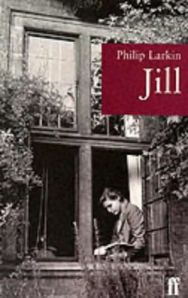Where I got it
 I honestly don’t know where I got this book, but if I had to guess, I’d assume I found it at a book stall and chose to buy it after reading the words ‘Larkin’ and ‘Oxford’. My first year English teacher exposed us to Larkin’s despairing, nihilistic poetry, so I was eager to read more of his cutting wit. As for Oxford, it had always been my dream to attend the school and live in the ‘city of dreaming spires,’ so any literature about that lifestyle, for me, is a draw.
I honestly don’t know where I got this book, but if I had to guess, I’d assume I found it at a book stall and chose to buy it after reading the words ‘Larkin’ and ‘Oxford’. My first year English teacher exposed us to Larkin’s despairing, nihilistic poetry, so I was eager to read more of his cutting wit. As for Oxford, it had always been my dream to attend the school and live in the ‘city of dreaming spires,’ so any literature about that lifestyle, for me, is a draw.
When I read it
This book has been sitting on my bookshelf for some time in the realm of 5 years. I constantly pick up stacks of books from the library and read one, two, or none, depending on what calls out to me. Sometimes I just stand in front of my bookshelf, waiting to be inspired to pick one up. I finally picked this book up, and read it both in my room on my favourite reading chair, as well as sitting outside sun tanning during the glorious Toronto heat wave.
My two cents
Cent the first: In Shakespeare’s The Tempest, Prospero tells his Neapolitan counterparts: ‘You do yet taste / Some subtleties o’ the isle.’ This book gave me a taste of the subtleties of a distinct Oxford – the city and the university during the lean years of World War Two. In one sense, Larkin recalls the pedantry of the college robes and a freshman scholarship student’s yearning to fit in amongst the wealthy in a time when the English class structure was resentfully beginning to crumble. While thinking about the ‘haves’ and ‘have nots’ of material wealth, Larkin refocuses on the sacrifices every boy had to make, drawing us vivid pictures of students wandering blindly through the darkened streets to drink at sparsely candlelit pubs.
Cent the second: in his introduction to a later edition, Larkin justifies his omission of chapter breaks by saying that the book was not a novel, but rather an extended short story. I thought the lack of breaks would make the novel draw on like watching yet another production of King Lear, but it had the exact opposite function; without chapter breaks, I never wanted to finish reading because I was always looking forward to the next event!
Short stories take more effort than simply writing a story and cutting it short; instead, authors utilize the short space by painstakingly crafting multi-layered literary devices and unified images (to loosely quote Poe) as they can. This way, they develop the thought as strongly as a novelist would, but in a far shorter time. Larkin’s book is an exercise on how to creatively and masterfully execute an extended metaphor. He uses the character of Chris Warner to represent the unattainable ideal of old money and status, standing in firm contrast with the protagonist Kemp’s hard work. He uses pathetic fallacy in a twofold manner, the English rain and the nightly blackouts representing Kemp’s inner turmoil and loneliness, while also reminding the reader of the ever-pervasive German bombs dropping all over the country, disrupting what should have been a ‘normal’ university experience. Larkin perpetually moves back and forth from discussing real bombs vs. social bombs, reminding us that not just the search for love – also friendship – can be a set of battles ending in defeat. The actual bombs snap Kemp out of his social self-pity, but his hubris lies in the fact that he never puts his own advice into action and no character concludes the story any the wiser.
A final image to leave you with: as Kemp lies in the infirmary at the end of the story (with a case of pneumonia contracted after being thrown into a fountain by Warner, protecting the young Jill from Kemp’s advances) and Warner and Elizabeth leave to go back to ‘Town’ together, a lonely stray dog, the perfect metonymy for the worse-for-wear Kemp, growls at the two, one final pathetic attempt at connecting with these upper class characters, an attempt that is, once again, ignored.
